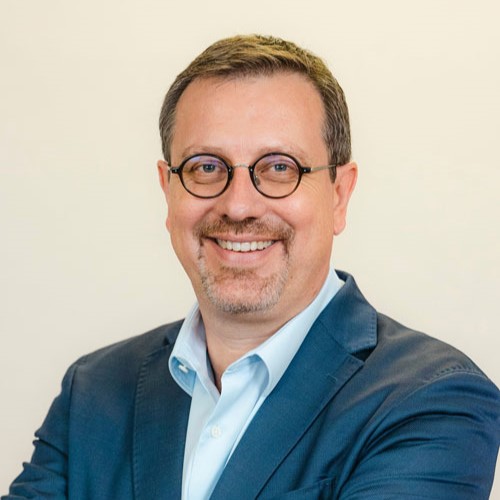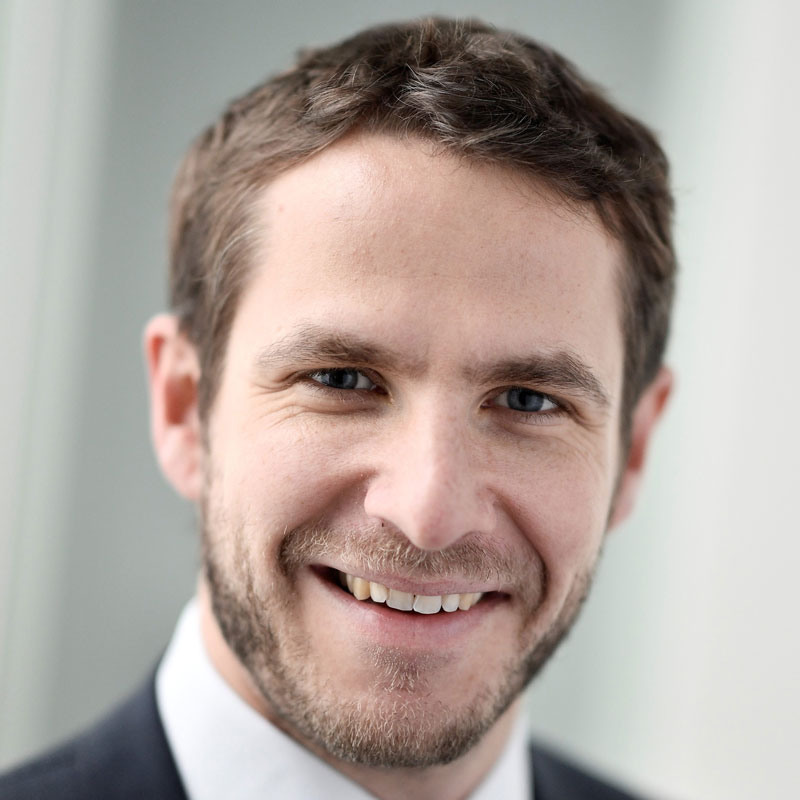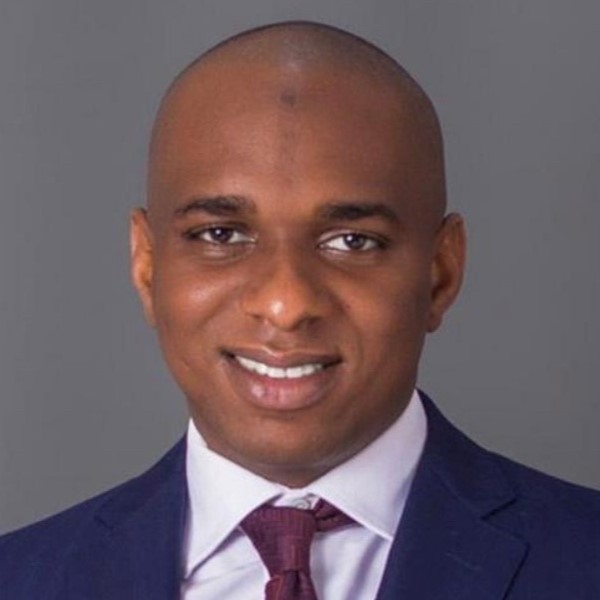Programme
This year’s conference programme will focus on the following theme:
Co-Creating Successful and Sustainable Strategies : The Key Role of the Private Sector and Cooperation with the Public Sector
-
Welcoming of Participants & Networking
From - 4:00 PM -
Keynote Sessions
4:30 PM - 5:45 PM | Toubakal
Mohamed BENOUDA
Founder & Chairman, ABA Technology

Nayé Anna BATHILY
Manager – External & Corporate Relations, Western & Central Africa, World Bank

Rupert WETERINGS
Group Commercial Officer, Olea Insurance Solution

Adenike MACAULAY
Chief Executive Officer, Wakanow

Abdoul Aziz SY
Deputy Chief Executive Officer, Supdeco Dakar Group
-
Choiseul Africa Awards Ceremony
6:30 PM - 7:15 PM | TichkaChoiseul Africa Award – Digital Talent of the year with Orange
Choiseul Africa Award – Project of the year with African Guarantee Fund
Choiseul Africa Award – Woman Leader of the year with l’Oreal
Grand Prix Choiseul with AXA

Jérôme HÉNIQUE
Chief Executive Officer, Orange Middle East and Africa

Meryem CHAMI
Chief Executive Officer, AXA Africa

Severine FADAIRO LEMON
General Manager - Consumer Product Division and Multidivision Sub Saharan Africa, L'Oréal International Distribution
-
Welcoming Cocktail
7:30 PM - 9:30 PM | Oliviers terrace
-
Official Opening Ceremony
8:30 AM - 10:30 AM | Tichka
Rui DUARTE DE BARROS
Prime Minister, Republic of Guinea-Bissau

Mehdi TAZI
General Vice President, General Confederation of Moroccan Enterprises

Pascal LOROT
Director, Choiseul Africa
-
Co-Creating Successful and Sustainable Strategies : The Key Role of the Private Sector and Cooperation with the Public Sector
10:30 AM - 11:30 AM | TichkaThe acceleration of the economic and social development of the African continent requires a combination of solutions and action levers. Among these, increasing the potential of the manufacturing sector in order to achieve true industrialization of economies is crucial. It is also essential to capitalize on natural resources for sustainable exploitation that creates local value. Additionally, focusing on innovation offers significant potential to enable a leapfrog in economic development.
One of the major strategic challenges lies in strengthening partnerships between various actors, whether they are private, public, or institutional. The private sector plays a driving role in economic growth, but this requires multiplying interactions among its actors. Simultaneously, the public sector, through its ability to regulate and stimulate the economy, must enhance public-private collaboration and perhaps better understand reciprocal needs.
Africa increasingly integrates into globalization and the interconnection of its economies with other continents, primarily Europe. It is therefore imperative to renew the Africa-Europe partnership by focusing on the complementarity of needs as well as medium- to long-term strategies between the two continents.
Thus, how can the private sector and the public sector collaborate effectively to stimulate industrialization, innovation, and local value creation in Africa? To what extent can the strengthening of the Africa-Europe partnership address the strategic needs of both continents in a context of redefined globalization?

Ryad MEZZOUR
Minister for Industry and Commerce, Kingdom of Morocco

Manal BERNOUSSI
Founder & Managing Director, Leaders On Purpose

Jérôme HÉNIQUE
Chief Executive Officer, Orange Middle East and Africa

Isabelle BÉBÉAR
Director of International and European Affairs, Bpifrance

Meryem CHAMI
Chief Executive Officer, AXA Africa

Abdou DIOP
President of the African Commission, General Confederation of Moroccan Enterprises
-
Coffee Break & Networking
11:40 AM - 12:00 PM | Networking areas -
Ensuring Food Security: Local Solutions for Global Challenges
12:00 PM - 1:15 PM | SirouaWhile Africa still largely relies on food imports to satisfy the increasing demands of its populations, shifting towards a local agro-industry is more critical than ever. Large-scale agricultural operations are central to this transformation, yet they encounter significant challenges, such as inadequate infrastructure, high logistical costs, reliance on foreign products like fertilizers, and volatile energy prices.
Developing modern infrastructure, accessing financing, and adopting technological innovations are essential strategies for achieving this transition, which also requires reconsidering crop adaptation in response to climate change disruptions. Public-private partnerships are crucial for fostering the creation of local value chains, while also enhancing resilience to energy and climate crises.
In this context, how can players from the agro-industrial sector not only satisfy domestic food needs but also strengthen their resilience against global crises?
Daouda FALL
Chief Executive Officer, Brahms Group

Daniel IBRAHIM
Africa Director, Edenred

Fatma REKIK
Chief Executive Officer, Groupe Stifen

Ismaël BARMOU
Chief Executive Officer, Société de Transformation Alimentaire

Hafou TOURE
Partnership and Resource Mobilisation Officer for the Alliance for agro-industrial zones, African Development Bank

Youssef AMJAHDI
Business Unit Director, IMPELAB
-
Strengthening Health Systems and Enhancing their Economic Outcomes
12:00 PM - 1:15 PM | ToubakalThe health sector in Africa has undergone significant transformation in recent years, driven by a growing demand for healthcare services due to demographic and economic growth. Despite ongoing challenges related to infrastructure, care for vulnerable populations, and human capital, the health sector is now seen as a field rich in investment opportunities and a catalyst for economic growth.
National and international investments in health, supported by favorable public policies and public-private partnerships, play a key role in this transformation. The private sector, in particular, is viewed as a crucial catalyst for improving healthcare delivery and stimulating innovation in the health field.
Thus, how can the private sector further collaborate with African governments to improve healthcare infrastructure and services, and in which manner can the economic impact of health investments be maximized?

Fatoumata SY
Deputy to Chief Ethics, Risk and Compliance Officer, Gavi, the Vaccine Alliance

Amer BENOUDA
Vice President, ABA Technology

Anne-Sophie GROUCHKA
Chief Executive Officer of Solvd Group & Chairwoman of AMREF Health Africa

Gaston de SOUZA
Managing Director, La Générale Des Assurances Du Bénin

Erick MAVILLE
President, Santé en Entreprise

Zineb DRISSI KAITOUNI
Chief Executive Officer, DabaDoc
-
Round table on Cultural and Creative Industries in Africa
12:00 PM - 1:15 PM | OliveraieCultural and creative industries (CCIs) in Africa, such as music, fashion, or fast-growing sub-niches like video games and e-sports, have significant economic potential on the continent, estimated at $4.2 billion by the IFC. Supported by the continuing growth of digital markets, CCIs have a major leverage effect on the economy by creating jobs, attracting tourism, or developing local talent, with the film industry serving as a prime example and positioning countries such as Ivory Coast, Nigeria, and Congo as key global cultural hubs.
The rapid expansion of the CCIs sector, coupled with the increasing demand for locally produced creative content across the continent, is driving private investments and fostering collaborative synergies across Africa in a highly competitive landscape dominated by global giants. To effectively harness this potential, genuine support from both public and private sectors is essential. This includes initiatives to formalise the industry, provide technical and material assistance, as well as protect intellectual property rights—critical steps towards establishing CCIs as key drivers of development on the continent.
What innovative partnership strategies could be implemented to mobilise the necessary execution and funding capabilities in response to the growing demand for local creative products and content on the continent, and how can they be further exported to international markets?

Laureen KOUASSI OLSSON
Founder & Chief Executive Officer, Birimian Ventures

Matthias LERIDON
Chief Executive Officer, AAD-fund & Tilder

Christian BOMBRUN
Director, MTN Digital

Fihr KETTANI
Vice President, Federation of Cultural and Creative Industries of Morocco

Abdelaziz EL IDRISSI
Head of Museums Department, National Museums Foundation of the Kingdom of Morocco
-
Cocktail luncheon & networking
1:15 PM - 2:45 PM | Patio -
Towards Energy Sovereignty in Light of Sustainable Development
3:00 PM - 4:15 PM | SirouaThe quest for energy sovereignty in Africa is increasingly framed within a sustainable development context, aiming to reduce dependence on energy imports and to maximize the use of the continent’s natural resources. This approach is crucial for ensuring sustained economic growth while minimizing the ecological footprint. With a considerable potential in renewable energies such as solar, wind, hydro, and geothermal, as well as conventional energy sources, Africa has the capacity to transform its energy landscape in a sustainable and autonomous manner.
The African continent, rich in natural resources, has often struggled with the challenge of exporting raw materials without adding value locally. However, the era of energy transition presents a unique opportunity for Africa to become a global leader in energy production, particularly in renewables. African governments, in collaboration with the private sector and international partners, are increasingly investing in innovative energy infrastructure throughout the entire supply chain of energy production and distribution.
What are the main levers to achieve energy sovereignty in Africa while supporting sustainable development? How can Africa fully exploit its renewable energy potential?

Olakunle WILLIAMS
Founder & Chief Executive Officer, Tetracore Energy Group

Loïc JAEGERT-HUBER
North Africa Regional Director, ENGIE

Louis CAMARA
Managing Director, Kamsar Petroleum

Aida DIOUF
Africa Executive Director, Camusat

Franck KIÉ
Managing Director, Ciberobs Consulting

Assia BENHIDA
President for the Sustainable Development Commission of CGEM & Market and ESG Partner of PwC Morocco
-
Urbanisation: Between Challenges and a Driving Role in Economic Transformation
3:00 PM - 4:15 PM | ToubakalThe rapid urbanisation of Africa, which has seen its urban population grow from 27 million to 587 million inhabitants between 1950 and 2020, presents both considerable challenges and significant opportunities. This trend is expected to continue, with the African population projected to reach approximately 2.4 billion inhabitants by 2050, representing a quarter of the world’s population.
This urbanisation constitutes a potential driver of economic transformation by stimulating growth, generating jobs, and fostering the development of new infrastructure. However, this rapid expansion requires urban planning and sustainable management to fully harness its benefits and minimize its negative impacts.
Financing remains a major obstacle, with the annual financing gap for urban infrastructure in Africa estimated at $108 billion. This shortfall necessitates an increase in cooperation between the public and private sectors, as well as an effective mobilisation of local and international resources. Additionally, South-South cooperation is essential for sharing best practices and developing urban models tailored to African specificities.
How can African cities adapt to rapid urbanisation while preserving natural resources, mitigating the impacts of climate change, and promoting sustainable and inclusive urban development, in order to transform urbanisation into a genuine economic opportunity?

Salimo ABDULA
Chairman, Intelec Holdings

Pierre VERLYCK
Advisory Director, Choiseul Advisory

Christian YOKA
Africa Director, Agence Française de Développement

Nicolas KOZUBEK
MIPIM Director, RX France

Rama YAGUE
Director of Territorial Promotion, Urban Land Development and Renewal Company

Mohamed Amine SABIBI
Directeur général par intérim, Centre Régional d'Investissement Marakech-Safi
-
Coffee Break & Networking
4:15 PM - 4:45 PM | Networking areas -
Transportation & Logistics: Streamlining and Securing Commercial Exchanges
4:45 PM - 6:00 PM | SirouaAfrica is experiencing a sustained demographic growth and a rapid increase in consumption. This dynamic is leading to a constant increase in the volumes of goods and services being imported and exported, primarily via maritime and air transport, with forecasts predicting continued growth in the coming years. The modernisation of logistical infrastructure is crucial for the economic transformation of the continent, competitiveness, industrialisation, and economic integration.
To consolidate the continent’s position in global trade, private operators, African states, and donors are attempting to accelerate the deployment of port, rail, and road infrastructure, along with peri-urban logistical zones, in order to coordinate efforts in providing the continent with more world-class hubs.
What are the strategic levers to further structure logistics in Africa and integrate the continent into global supply chains, while sustainably strengthening intra-African trade? How can port, rail, and road infrastructures be developed and modernised in a coordinated manner to address the continent’s logistical challenges?

Lamine Mohamed SECK
Managing Director, SF Capital

Abdoul Karim DIALLO
Chief Executive Officer & Shareholder, Sonoco Group

Abdullahi BASHIR
Group Managing Director, AA&R Investment Group

Mina Houssein DOUALEH
Managing Director, Djibouti Regional Maritime Training Center

Ralph OLAYE
Managing Director in charge of Project Development and Management, Eranove

Bamba LÔ
Co-Founder & Chief Executive Officer, Paps
-
Investing in Human Capital and Innovation for Industrial Development
4:45 PM - 6:00 PM | ToubakalThe development of human capital and innovation is crucial for the industrialisation of Africa. The continent must not only invest in its digital infrastructure but also strengthen its educational systems to train talent who are able to meet the growing demand for technical and technological skills. The integration of advanced technologies, such as artificial intelligence (AI) and big data, can boost the productivity and efficiency of African businesses, but this requires a concerted effort to overcome the current challenges.
The private sector remains the main driver of initiatives for the adoption of AI, as well as for vocational training programs. Nevertheless, such momentum needs to be further supported and boosted by national plans of African states
What strategies can be deployed to encourage local technological innovation and promote vocational training in support of economic development in Africa?

Arnaud FLORIS
Head of Africa, Bpifrance

Ghita AMMOR
Managing Partner Morocco, Artefact

Rui MENDES DA SILVA
Co-Founder & Chief Executive Officer, Kemet Automotive

Yershen PILLAY
Chief Executive Officer, Chemical Industries Sector Education and Training Authority

Gilles TCHAMBA
Chief Executive Officer, L'Archer

Karim CHEIKH
President for Human Capital Commission of CGEM & Managing Director of CETIM
-
Closing Dinner
8:30 PM - 11:00 PM | Oliviers terrace